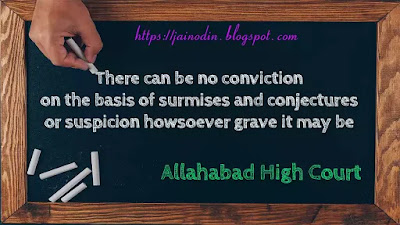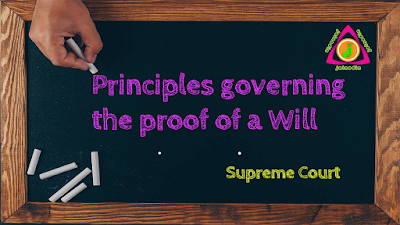It is not the job of the police authorities to get the matter settled in their offices
As it is undisputed fact that entire case of the plaintiff for advancing money to defendant was based upon Paper No. 13 Ka-1 executed before S.P. City, Aligarh, no other document was filed, nor the case was proved through oral testimony in regard to advancing of money to defendant. The oral testimony of PW-2 and PW-3 only prove the execution of Paper No. 13 Ka-1 before police authorities, apart from that plaintiff failed to disclose in his plaint the dates on which advance to the tune of Rs.14 lacs was made by him and also as to when Rs.2 lacs was returned by defendant. Plaintiff also did not bring on record his income tax return for the relevant years to prove whether he had disclosed the amount in his return.[Para No.27]
Argument of learned counsel for the appellant cannot be accepted to the extent that Paper No. 13 Ka was proved by oral testimony of PWs and DWs and lower appellate court could not have decreed the suit against plaintiff on the ground that it was got executed under pressure.[Para No.28]
It is plaintiff's specific case that Paper No. 13 Ka-1 was got executed before S.P. City, Aligarh on 25.05.2009. Plaintiff himself is a practicing lawyer at Aligarh and the two witnesses, Vinod Kumar Gautam (P.W.-2) and Arun Kumar Gautam (P.W.-3) are also practicing advocates in civil court in Aligarh, thus, it is an admitted case that document was executed before the police authorities, and neither of the police officers were examined as plaintiff witnesses to prove the execution of the said document. Burden of proving the document having been executed in the office of S.P. City, Aligarh was upon the plaintiff, as the defendant had categorically stated in his written statement as well as in cross-examination that the said document was got executed under duress and pressure.[Para No.29]
It is strange to note that police station and office of district police officials are becoming center for mediation/ settlement of civil and commercial disputes. It is not the job of the police authorities to get the matter settled in their offices rather, making genuine efforts to curb and control crime in the district. [Para No.30]
Once the plaintiff had relied upon the document to have been executed before police authorities, onus was upon him to prove that it was executed under free will, and the officer before whom the same was executed should have been produced as one of the witnesses.[Para No.31]

















